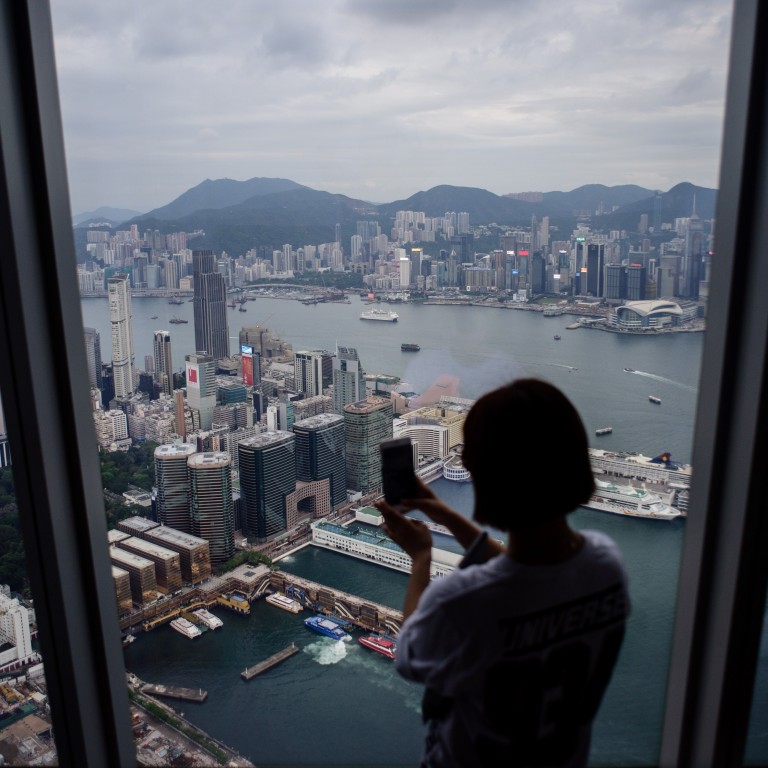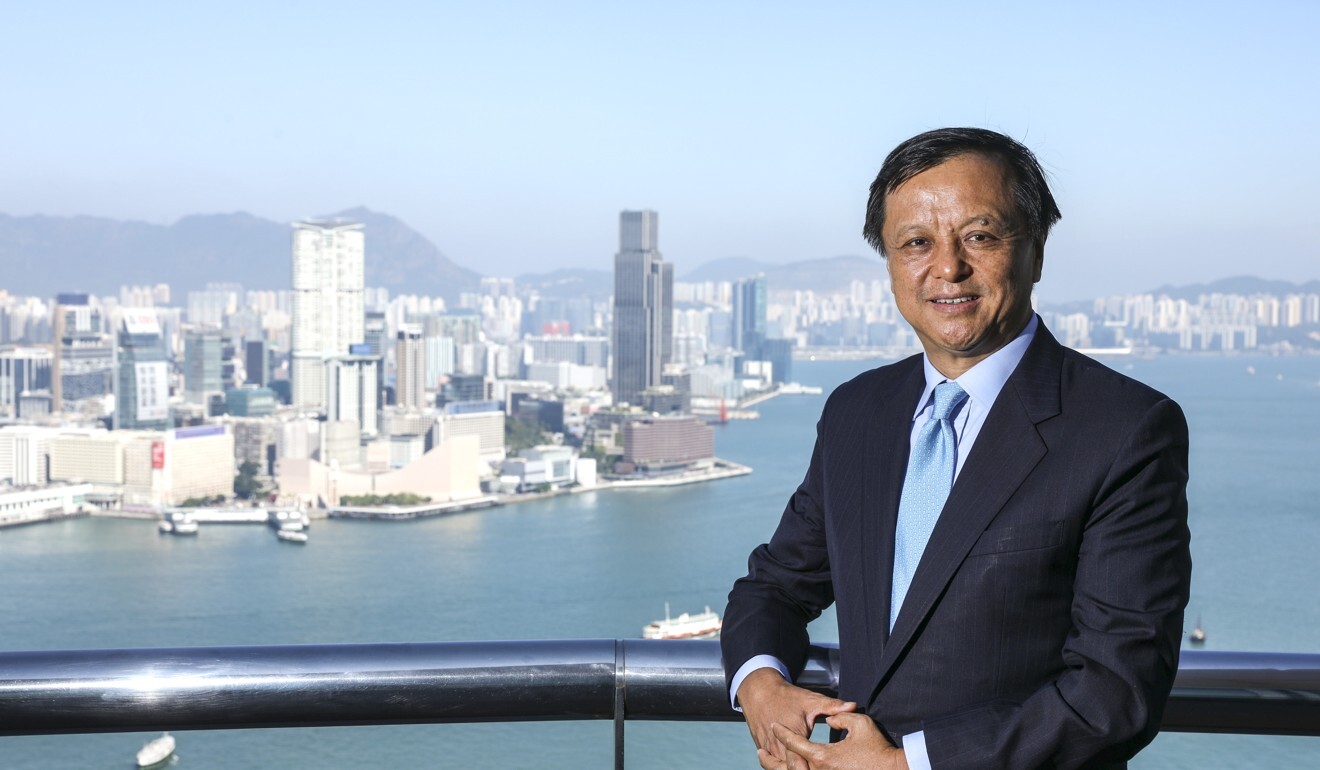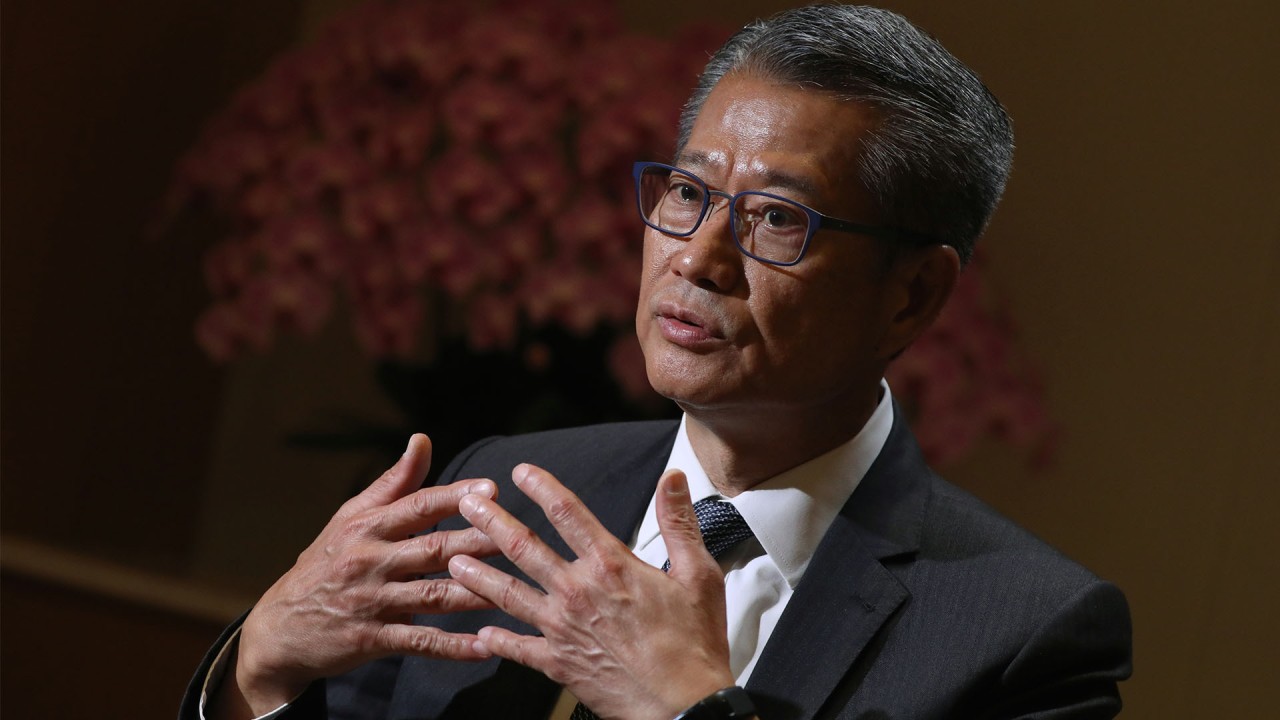
As HKEX turns 20, it has never been more relevant as bridge between China and world, CEO Charles Li says
- Hong Kong Exchanges and Clearing marks its 20th birthday on June 27
- Latest three-year plan will achieve its goal of keeping Hong Kong’s exchange ‘China anchored, globally connected and technology empowered’: Charles Li
China and the rest of the world need each other, and Hong Kong and its bourse operator, Hong Kong Exchanges and Clearing (HKEX), will play the crucial role of connector and translator, Charles Li Xiaojia said.
In a blog post to the mark the 20th anniversary of HKEX’s foundation, its outgoing chief executive also said his last three-year plan, for the 2019-2021 period, would help the Hong Kong exchange become the most important financial market in Asia.
“Our role has never been more relevant or more important,” Li said in his blog. “Hong Kong, and HKEX in particular, will continue to play the critical role of connector, translator and bridge between China and the world.”
He pointed out that the internationalisation of the yuan and the opening of China’s financial markets might be slow, but the country was still on an “irreversible track” towards further integration with international markets. “China and the rest of the world need each other,” Li said.
HKEX’s future will very much depend on whether it can capture the opportunities offered by the burgeoning Chinese economy in the 21st century.
“The future of the exchange will depend on whether it can find a strong leader for the next decade. Political tension between the US and China and the Covid-19 pandemic will pose challenges to HKEX’s development in the near term. Charles Li’s departure next year will also create more uncertainties for the exchange,” said Tom Chan Pak-lam, the chairman of Hong Kong Institute of Securities Dealers.

HKEX listed in Hong Kong on June 27, 2000 at HK$3.88 a share. As of Tuesday morning, its stock stood at HK$294.8. Anyone who bought 1,000 shares at HK$3,880 (US$500) at the time of its listing, their shares will be worth HK$294,800 at the moment.
Retail investors join JD.com’s ‘homecoming’, oversubscribe Hong Kong public offer 179 times

02:01
Five ways to kick-start Hong Kong’s protest-stressed economy
Hong Kong relaxes quarantine rules for largest listed firms such as Tencent and Alibaba
The Stock Connect schemes launched in 2014 (Shanghai) and 2016 (Shenzhen) established HKEX as a cross-border trading hub. International investors had traded A shares worth a total of 25.8 trillion yuan (US$3.6 trillion) through the schemes, while mainland Chinese investors had traded HK$11.04 trillion worth of shares in Hong Kong, as of end of May.

06:17
Hong Kong can withstand fiscal woes amid Covid-19 pandemic, says city's financial secretary
“HKEX’s future will very much depend on whether it can capture the opportunities offered by the burgeoning Chinese economy in the 21st century. It should also consider building alliances with global exchanges and regional exchanges, and build more Stock Connects with other bourses,” said Louis Tse Ming-kwong, the managing director of VC Asset Management. “The competition from Singapore is a myth, as Singapore's economy and GDP bases do not match Hong Kong’s,” he said.

